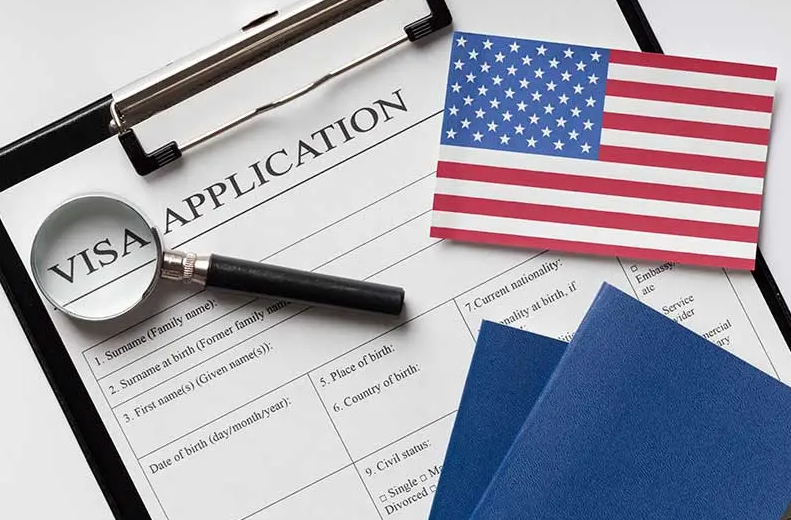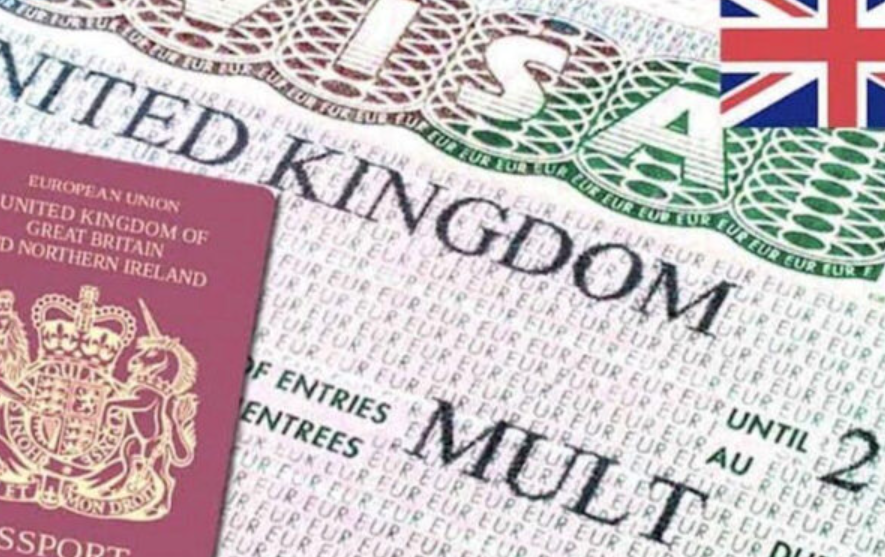Australia, with its stunning landscapes, vibrant cities, and thriving economy, continues to be a magnet for skilled professionals worldwide. But navigating the complex landscape of immigration can be daunting. One pathway that stands out for its practicality and efficiency is the employer sponsored visa.
If you’re wondering which industries are actively seeking international talent and offering these visas, you’ve come to the right place. This article dives deep into the top industries offering employer-sponsored visas for immigrants in Australia, providing you with valuable insights and actionable information to kickstart your Australian adventure.
Whether you’re a seasoned professional seeking new horizons or a recent graduate eager to launch your career on a global stage, this guide is your essential resource. We’ll equip you with the knowledge, insights, and strategies to unlock the doors to opportunity and build a fulfilling life in Australia. Get ready to move beyond the myths and embark on a transformative journey towards your Australian dream.
Understanding the Visa Sponsorship Process for Australia
The promise of an Australian employer-sponsored visa is a beacon of hope for skilled workers worldwide. However, the path to securing this coveted visa can seem like a daunting maze. Understanding the intricacies of the process is crucial for a smooth and successful application. Let’s break down the key steps involved in navigating the Australian visa sponsorship landscape.
-
Employer Nomination:
The cornerstone of an employer-sponsored visa is the nomination. This is where an Australian employer formally identifies you as the ideal candidate for a specific skilled position they cannot fill locally.
- Job Advertisement and Labour Market Testing (LMT): Before nominating a foreign worker, employers are often required to demonstrate that they have made genuine attempts to recruit Australian citizens or permanent residents. This involves advertising the position and conducting thorough labour market testing. This process ensures that overseas workers are only brought in when there’s a genuine skills shortage.
- Nomination Application: The employer submits a nomination application to the Department of Home Affairs, providing detailed information about the job, the company, and your suitability for the role. This application is crucial, as it sets the stage for your visa application.
- Occupation and Skill Level: The nominated occupation must be on the relevant skilled occupation list and meet the required skill level. This list is subject to change, so staying updated is essential.
- Genuine Position: The employer must prove that the nominated position is genuine and necessary for their business operations. Sham nominations are strictly prohibited and can lead to severe penalties.
-
Visa Application: Your Formal Request for Entry
Once the nomination is approved, you can proceed with your visa application. The type of visa you apply for will depend on the duration of your stay and your long-term goals.
- Temporary Skill Shortage (TSS) Visa (Subclass 482): This visa allows employers to sponsor skilled workers for temporary stays, typically up to four years.
- Short-Term Stream: Designed for occupations on the Short-Term Skilled Occupation List (STSOL).
- Medium-Term Stream: Designed for occupations on the Medium and Long-Term Strategic Skills List (MLTSSL) or the Regional Occupation List (ROL).
- Labour Agreement Stream: This stream is for employers who have entered into a labour agreement with the Australian government.
- Employer Nomination Scheme (ENS) Visa (Subclass 186): This visa is for skilled workers who are nominated by their employer for permanent residency.
- Direct Entry Stream: For applicants who have the required skills and experience.
- Temporary Residence Transition Stream: For applicants who have held a TSS visa for a specified period.
- Agreement Stream: For applicants sponsored through a labour agreement.
- Visa Requirements: Your visa application will require detailed information about your personal details, qualifications, work experience, and English language proficiency.
- English Language Proficiency: Most skilled visas require you to demonstrate a certain level of English language proficiency through a recognized test, such as IELTS, PTE Academic, or TOEFL iBT.
- Skills Assessment (if required): Many occupations require a formal skills assessment from a designated assessing authority. This assessment verifies your qualifications and experience against Australian standards.
-
Skills Assessment:
For numerous skilled occupations, a skills assessment is a mandatory step. This process ensures that your qualifications and experience meet Australian standards.
- Assessing Authorities: Different assessing authorities are responsible for assessing different occupations. You must identify the relevant authority for your occupation.
- Assessment Criteria: The assessment criteria vary depending on the occupation and the assessing authority. They typically include your qualifications, work experience, and relevant skills.
- Document Submission: You will need to provide certified copies of your qualifications, work experience letters, and other relevant documents.
- Assessment Outcome: The assessing authority will issue an assessment outcome, which will either be positive or negative. A positive outcome is essential for your visa application.
-
Health and Character Checks:
The Australian government requires all visa applicants to undergo health and character checks.
- Health Examination: You will need to undergo a medical examination by a panel physician appointed by the Department of Home Affairs.
- Police Clearance Certificates: You will need to provide police clearance certificates from all countries where you have lived for 12 months or more in the past 10 years.
- Character Requirements: The Department of Home Affairs will assess your character to ensure you meet the required standards.
-
Visa Grant:
If your application is successful, you will be granted the visa. This will allow you to live and work in Australia for the specified period.
- Visa Conditions: Your visa will come with specific conditions, such as work restrictions and reporting requirements.
- Compliance: It is essential to comply with all visa conditions to avoid visa cancellation.
- Permanent Residency Pathway: For those seeking permanent residency, the ENS visa (subclass 186) or the Regional Sponsored Migration Scheme (subclass 187, where applicable) provides a pathway.
Understanding the Australian visa sponsorship process is essential for a successful application. By following these steps and seeking professional guidance, you can increase your chances of realizing your Australian dream.
Why Pursue Employer Sponsorship in Australia?
The decision to relocate to a new country is a significant life choice, fraught with considerations and aspirations. For many skilled professionals, Australia’s allure is undeniable, but the question remains: why pursue employer sponsorship specifically? It’s more than just a visa; it’s a gateway to a stable, rewarding future in a nation that values skilled migration. Let’s delve into the compelling reasons that make employer sponsorship a highly attractive pathway to Australian residency.
-
Secure and Stable Employment:
- Guaranteed Job Offer: Unlike independent skilled migration, employer sponsorship provides a pre-arranged job offer. This eliminates the uncertainty of job hunting upon arrival, offering immediate financial stability and peace of mind.
- Long-Term Prospects: Many employer-sponsored visas, particularly the ENS (subclass 186), offer a direct pathway to permanent residency, allowing you to build a long-term career and establish roots in Australia.
- Reduced Stress: Knowing you have a job waiting for you significantly reduces the stress and anxiety associated with international relocation.
-
Accelerated Pathway to Permanent Residency:
- Direct Nomination: The ENS (subclass 186) visa offers a direct pathway to permanent residency for eligible skilled workers nominated by their employers.
- Temporary Residence Transition: The TSS (subclass 482) visa can serve as a stepping stone to permanent residency through the Temporary Residence Transition stream of the ENS, provided you meet the requirements.
- Regional Opportunities: Regional areas often have greater demand for skilled workers and may offer faster pathways to permanent residency through regional migration programs.
-
Enhanced Career Development:
- Access to Specialized Roles: Employers often sponsor highly skilled professionals for specialized roles that are difficult to fill locally, providing access to challenging and rewarding career opportunities.
- Professional Growth: Australian employers are known for investing in their employees’ professional development, offering training, mentorship, and opportunities for career advancement.
- Competitive Salaries and Benefits: Australia offers competitive salaries and comprehensive benefits packages, ensuring a high standard of living.
-
A Thriving Economy and High Quality of Life:
- Robust Economy: Australia’s stable and diversified economy offers numerous employment opportunities across various industries.
- High Standard of Living: Australia consistently ranks high in global quality of life indices, offering excellent healthcare, education, and infrastructure.
- Multicultural Society: Australia is a vibrant multicultural society, welcoming people from all over the world.
- Balanced Lifestyle: Australians are known for their balanced lifestyle, emphasizing work-life balance and outdoor activities.
-
Access to Australia’s Social Benefits:
- Medicare: Permanent residents have access to Medicare, Australia’s public healthcare system, providing affordable and comprehensive healthcare coverage.
- Education: Permanent residents have access to public education and may be eligible for student loans and other financial assistance.
- Social Security: Permanent residents may be eligible for social security benefits, such as unemployment benefits and aged pensions.
-
Employer Support and Guidance:
- Visa Assistance: Employers who sponsor overseas workers often provide assistance with the visa application process, making it smoother and less stressful.
- Relocation Support: Some employers may also offer relocation support, such as assistance with finding accommodation and settling into your new life in Australia.
- Cultural Integration: Employers can play a vital role in helping you integrate into the Australian workplace and culture.
-
Addressing Skill Shortages:
- Contributing to Australia’s Growth: By filling critical skill shortages, you contribute to Australia’s economic growth and development.
- Valued Contribution: Your skills and expertise are highly valued, and you play a vital role in supporting Australian businesses and industries.
Pursuing employer sponsorship in Australia is a strategic move that offers stability, career advancement, and a pathway to a fulfilling life in a prosperous and welcoming nation. It’s an investment in your future, providing access to a high quality of life and a wealth of opportunities.
Eligibility Criteria for Securing Employer Sponsorship in Australia
Securing employer sponsorship in Australia is a coveted pathway, but it’s not a straightforward process. The Department of Home Affairs has established specific eligibility criteria to ensure that only skilled professionals who can contribute to the Australian economy are granted visas. Let’s dissect these criteria to provide a comprehensive understanding of what it takes to qualify.
-
Nominated Occupation and Skill Level:
- Skilled Occupation Lists: Your nominated occupation must be listed on the relevant skilled occupation list. These lists, such as the Medium and Long-term Strategic Skills List (MLTSSL), the Short-term Skilled Occupation List (STSOL), and the Regional Occupation List (ROL), are subject to change, reflecting Australia’s evolving labor market needs.
- Skill Level Requirements: Your skills and qualifications must align with the required skill level for your nominated occupation. This is often assessed based on the Australian and New Zealand Standard Classification of Occupations (ANZSCO).
- ANZSCO Code: Employers must nominate you for an occupation that matches your skills and experience, and is classified by the correct ANZSCO code.
-
Skills Assessment:
- Mandatory Requirement: For many occupations, a skills assessment is mandatory. This assessment verifies your qualifications and work experience against Australian standards.
- Assessing Authorities: Different assessing authorities are responsible for assessing different occupations. You must identify the relevant authority for your nominated occupation.
- Positive Outcome: A positive skills assessment outcome is crucial for your visa application. A negative outcome can result in visa refusal.
-
Work Experience:
- Relevant Experience: You must possess relevant work experience in your nominated occupation. The required duration and nature of experience vary depending on the occupation and the visa subclass.
- Documentary Evidence: You will need to provide documentary evidence of your work experience, such as employment letters, payslips, and tax records.
- Currency of Experience: Some occupations require recent work experience, ensuring your skills are up-to-date.
-
English Language Proficiency:
- Minimum Requirements: You must demonstrate a certain level of English language proficiency through a recognized test, such as IELTS, PTE Academic, or TOEFL iBT.
- Visa Subclass Variations: The required English language proficiency level varies depending on the visa subclass.
- Test Validity: Ensure your English language test results are valid at the time of visa application.
-
Health and Character Requirements:
- Health Examination: You must undergo a medical examination by a panel physician appointed by the Department of Home Affairs.
- Police Clearance Certificates: You must provide police clearance certificates from all countries where you have lived for 12 months or more in the past 10 years.
- Character Assessment: The Department of Home Affairs will assess your character to ensure you meet the required standards. Criminal convictions or a history of misconduct can lead to visa refusal.
-
Employer Nomination Requirements:
- Genuine Position: The employer must demonstrate that the nominated position is genuine and necessary for their business operations.
- Labour Market Testing (LMT): The employer may be required to conduct labour market testing to prove that they have made genuine attempts to recruit Australian citizens or permanent residents.
- Financial Capacity: The employer must demonstrate their financial capacity to employ you.
- Compliance with Australian Laws: The employer must comply with all relevant Australian employment laws and regulations.
-
Age Requirements:
- Visa Subclass Variations: Some visa subclasses have age requirements. For example, the ENS (subclass 186) visa may have age restrictions for certain streams.
-
Visa Specific requirements:
- TSS 482 Visa: this visa is for temporary workers. It has the short- and medium-term streams, and the labour agreement stream. Each has specific requirements.
- ENS 186 Visa: This visa is for permanent residency. It has the direct entry stream, the temporary residence transition stream, and the labour agreement stream. Each has specific requirements.
By understanding these eligibility criteria and taking the necessary steps to meet them, you can increase your chances of securing employer sponsorship in Australia and realizing your Australian dream.
Top Industries Offering Employer Sponsored Visas for Immigrants in Australia
The robust economy in Australia and persistent skills shortages across various sectors create a fertile ground for skilled immigrants seeking employer-sponsored visas. While opportunities exist in numerous fields, some industries consistently demonstrate a higher demand for international talent. Let’s explore these top industries in detail:
-
Healthcare: The Lifeline of the Nation
- Expansion: Australia’s healthcare sector is facing a critical skills shortage due to an aging population, increased demand for medical services, and regional workforce disparities. This creates a fertile ground for qualified healthcare professionals seeking employer sponsorship.
- Specific Roles:
- Specialist Doctors: Australia actively seeks specialists in areas like cardiology, oncology, neurology, and psychiatry.
- Registered Nurses (RNs): Particularly those with specialized skills in critical care, aged care, and mental health.
- Allied Health Professionals: Physiotherapists, occupational therapists, speech pathologists, and radiographers are in high demand across hospitals, clinics, and community health services.
- Medical Scientists & Technicians: Pathology, laboratory, and research roles are frequently sponsored.
- Why They Sponsor: Hospitals, medical centers, aged care facilities, and community health services are often located in regional areas where finding local workers is difficult.
- Pathways: Regional migration programs often prioritize healthcare professionals, offering faster pathways to permanent residency.
- Key Consideration: Registration with the relevant Australian professional body is often required.
-
Information Technology (IT): Driving Digital Innovation
- Expansion: Australia’s tech sector is experiencing rapid growth, driven by digital transformation across industries. This creates a constant demand for skilled IT professionals.
- Specific Roles:
- Software Engineers & Developers: Full-stack, front-end, back-end, and mobile developers are highly sought after.
- Cybersecurity Specialists: With increasing cyber threats, cybersecurity professionals are in high demand.
- Data Scientists & Analysts: Roles involving data analysis, machine learning, and artificial intelligence are growing rapidly.
- Cloud Computing Professionals: AWS, Azure, and Google Cloud specialists are needed for the cloud-based infrastructure of many businesses.
- Why They Sponsor: The fast-paced nature of the IT sector requires very specific and up to date skill sets, that are often difficult to find locally.
- Pathways: The IT industry often offers competitive salaries and excellent career progression opportunities.
- Key Consideration: Industry certifications and relevant experience are highly valued.
-
Engineering: Building the Foundations of Progress
- Expansion: Australia’s infrastructure projects, mining industry, and manufacturing sector rely heavily on skilled engineers.
- Specific Roles:
- Civil Engineers: Involved in infrastructure projects such as roads, bridges, and dams.
- Mining Engineers: Essential for Australia’s mining industry, operating in remote locations.
- Mechanical & Electrical Engineers: Required in manufacturing, construction, and resource industries.
- Chemical and Process Engineers: needed for the oil and gas industry, and other chemical processing plants.
- Why They Sponsor: Many engineering roles require specialized skills and experience, and are often located in remote areas.
- Pathways: Engineers are often listed on skilled occupation lists, facilitating visa processing.
- Key Consideration: Professional registration with Engineers Australia is often required.
-
Construction: Shaping the Urban Landscape
- Expansion: Australia’s growing population and infrastructure development are driving demand for skilled construction professionals.
- Specific Roles:
- Construction Project Managers: Overseeing large-scale construction projects.
- Quantity Surveyors: Managing construction costs and budgets.
- Skilled Tradespeople: Carpenters, electricians, plumbers, and bricklayers are in high demand.
- Building Surveyors: Ensuring construction projects comply with building codes and regulations.
- Why They Sponsor: The construction industry faces a shortage of skilled tradespeople and project managers.
- Pathways: Skilled trades are often prioritized for regional migration programs.
- Key Consideration: Trade qualifications and licenses are essential.
-
Mining: Extracting Australia’s Natural Wealth
- Expansion: Australia’s rich mineral resources drive a significant portion of its economy, creating opportunities for skilled professionals.
- Specific Roles:
- Mining Engineers & Geologists: Involved in exploration, extraction, and processing of minerals.
- Heavy Vehicle Operators & Maintenance Managers: Operating and maintaining heavy machinery in remote mining locations.
- Metallurgists: Extracting and refining metals from ores.
- Why They Sponsor: Mining companies often operate in remote areas and require specialized skills.
- Pathways: Mining jobs often offer high salaries and excellent benefits, particularly in remote locations.
- Key Consideration: Experience in remote locations and operating heavy machinery is highly valued.
-
Agriculture: Feeding the Nation and the World
- Expansion: Australia’s agricultural sector is a significant contributor to the economy, requiring skilled professionals in various roles.
- Specific Roles:
- Agricultural Scientists: Researching and developing new farming techniques.
- Farm Managers: Overseeing farm operations and managing livestock.
- Agricultural Engineers: Designing and maintaining farm machinery and irrigation systems.
- Horticulturalists: managing the growing of fruits, vegetables and ornamental plants.
- Why They Sponsor: A lot of the farms are in regional areas, and require specialized knowledge.
- Pathways: Regional visas are very common for agricultural positions.
- Key Consideration: experience with large scale agriculture and modern farming techniques is highly valued.
-
Hospitality: Serving the Tourism Boom
- Expansion: Australia’s tourism sector is a major economic contributor. Skilled hospitality professionals are in constant demand.
- Specific Roles:
- Chefs: Especially those with experience in specialized cuisines.
- Hotel Managers: Overseeing hotel operations and guest services.
- Restaurant Managers: managing all aspects of the restaurant.
- Specialized tourism operators: people with unique skillsets in the tourism industry.
- Why They Sponsor: Specialized chefs, and managers are often hard to find, especially in tourist heavy locations.
- Pathways: Regional visas are common for this industry.
- Key Consideration: Experience in high volume establishments, and specialized culinary skills are highly valued.
These industries represent prime opportunities for skilled immigrants seeking employer-sponsored visas in Australia. By understanding the specific needs of each sector and aligning your skills and experience accordingly, you can significantly increase your chances of success.
Conclusion
Australia’s top industries offering employer-sponsored visas for immigrants in Australia provide a wealth of opportunities for skilled professionals seeking a fulfilling career and a vibrant lifestyle. By understanding the industries in demand, networking strategically, and navigating the visa process effectively, you can turn your Australian dream into reality. Remember to always seek professional advice from a registered migration agent to ensure your application is accurate and compliant.






